#Other games do those things for the good of Players AND GMs
Explore tagged Tumblr posts
Text
Maybe the thing I hate the most about Critical Role's influence on ttrpg culture is the 'How Do You Want To Do This' shit - I hate it so much.
And like, y'know, there's a conversation to be had about the way it centers grotesque, over the top violence, and how it often produces wildly dissonant moments where a character suddenly goes wildly outside the bounds of who they are simply for a 'cool moment' or where it dramatically changes the tone of a fight and thus how I feel about it (and that's not even mentioning the way that players will do shit like that randomly - I will never not be upset about the way that Dim/ension 20 had the whole 'goblin up the asshole' thing)
And there's also something to be said for like, it's just a fun thing matt mercer wanted to do to let his players feel cool and give them the mic for a second to cut a promo, and it's definitely not the only thing that the show is about, but like...
It's like the GBBO Handshake, y'know? It's something that's Iconic, and gets this sort of following because it feels momentous or special, and suddenly all anyone cares about is getting it. Like, it is annoying to me how people will fall over themselves to get a handshake from paul hollywood but literally no one cared about impressing Mary Berry to the same extent. She didn't have a Thing and so her feedback was always rated lower than Paul's because the Handshake Mattered.
And I don't think it's Matt Mercer's fault the way I think it's Paul Hollywood's fault, exactly, but it is one of those things that I do have to assign blame to him as the originator of a thing that I hate.
Specifically because.
It creates this culture where the biggest moment you can get, the thing everyone wants, is to get the messy kill. It creates this culture where getting to describe an over the top Doom finisher is an ideal, and where it feels like it's the one moment where every GM is willing to share the spotlight a little.
And that sucks. For a lot of reasons, but primarily because it decenters like, any other agency the player can exert.
It sucks so bad when the only time you get creative agency as a player is to say how much you kill a thing. Throw out as many ideas as you want in the rest of the game, and get ignored or shot down, but this one guy? This rando bandit? This is your moment, brother.
And again, I don't think this is necessarily how Critical Role is run, but it's definitely how it's played, and how it models behavior for players, which is why it's so upsetting. I love listening to ACTUAL actual plays, where things are discussed openly at the table, because it gives people a model for how to handle things. Critical Role, all that stuff is discussed off-stream, all the backstory stuff is worked out ahead of time and all the major story beats are pre-planned, even if just in vague terms, and I think that's fine! IF you're doing a stage show, and not an actual play. Yes, players should discuss ahead of time whether they're interested in having their characters pursue a romance, and yes, if a GM is going to introduce a major plot arc based around a PC there should be discussion about it ahead of time, but obfuscating all of that just means that people listening don't understand how to DO it.
And what it means is that the big moment where players get to hold the reins for even a second, on-screen, is the kill.
And all the other stuff? Well, y'know, you don't need to ask the players for input. Just be a good DM, like Matt. Just tell a great story and they'll all sit in raptured silence and be so excited to follow the tracks to the next plot point, and the only time you need to check to see if they want to DO anything is when they roll a crit.
And it's just like, there are basically no 'how do you want to do this' moments in the HUNDREDS of episodes of Friends at the Table, and all of the memorable moments are players taking agency and pitching ideas. Like, there are big kills in Friends at the Table that fucking HIT, and none of them are because they're Doom Finishers. Hadrian in the Hieron holiday special fucking HITS because it's a meaningful, powerful character choice. Mother Glory in the other Hieron holiday special HITS because it's such a tragic, hateful thing to have happen. Hella killing [redacted] isn't cool or exciting, it sucks, and it plays directly into her 'I would rather destroy something than try to understand it' morality, so it fucking HITS.
And like, I could go for hours, and I couldn't tell you ANY of the 'how do you want to do this' moments from the 50-60 episodes of critical role that I watched, because they all suck. They're all just spectacle, just getting keys jingled in your face for a few seconds, and it's so frustrating that it feels like that's the only thing people have taken away from Matt Mercer's GMing (I have a lot of OTHER critiques about his GMing, so I'm not saying that learning from him in other ways is better, but I'm also a hater).
But y'know, they clip well for tiktok or whatever.
It's just one more goddamn thing I hold against 5e culture, but it's also so quintessentially AMERICAN - of COURSE we're going to want to spotlight a grotesque kill, have you watched ANY of our tv shows. Of course the only time that a player's input is needed is so they can narrate their finisher - that's EASY and it's FUN because we have no concept of the humanity of the people we kill. It's fun to climb up a monster's asshole because no one has to consider whether that COUNTS against a nonperson.
And it's just like, y'know, I feel like there's this glorification of violence as long as you can feel justified, and it's easy for us to feel justified, so you end up with people making zombie movies just so that they can sell fantasies of shooting your neighbor in his face for mowing the lawn too often, or you ignore any morality because someone hurting you in the past DEFINITELY justifies waterboarding them with isopropyl.
And like, I don't want to be too high-and-mighty because I do think there's a place for over-the-top violence, and for retributive violence, in storytelling, but I just don't think it should be as a highlight reel, and it shouldn't be a candy-coated reward for rolling good.
It matters, it's noticeable, how you as the GM frame the camera. It's obvious what you care about depending on what details you ask for. And y'know, it's obvious what you're not interested in when you don't ask.
And again, it should not be the only time you ask a player to describe something.
#long post#vent post#and again I think critical role had some really good character work#there are lots of moments I remember between PCs in quiet moments#but it's not what the audience took away from it#and again. it's like the GBBO handshake#at a certain point you need to be able to recognize the weird pedestal people are putting your Thing on and respond to it#especially in the case of paul hollywood where his Thing makes him a more 'valuable' judge than his female costar
21 notes
·
View notes
Note
Regarding your post(s) about investigation checks and the like, there's something that's bothering me, and it bothered me for a while. Not in regard to investigation, but charisma (and similar checks, diplomacy, negotiation, persuasion, whatever the game calls it).
In a TTRPG with skills, those skills are an abstraction meant to simulate a characters actual capabilities. If I want to make a character who can effortlessly jump from rooftop to rooftop, I'll give them high Athletics, Agility, Endurance, whatever. Maybe some feats, abilities, perks, advantages etc that pertain to jumping. Now, if I want my character to jump from rooftop to rooftop, I just roll the dice, and the skills, attributes, perks etc will make sure I have a high likelihood of success. I don't need to prove to the GM or the group that I myself could make that jump.
But now let's talk about Charisma checks. I've often heard stories of groups who say they don't make those checks, they just let the player make the argument, and if the GM is convinced, they "pass." But like... that means the character will always be as persuasive as the player. If the player isn't good at formulating an argument, the character won't be, either. Same with perception, investigation, etc. Sometimes, players just aren't good at picking up on hints and clues and/or they're not good at drawing conclusions from the clues they have. So that means that they can't play as a character who is?
Don't get me wrong, I get your point, I just find this is an issue worth thinking about. Why are things like athleticism, stealth, and combat prowess, or even things like lockpicking, hacking, or repairing stuff okay to abstract away as dice rolls, but deduction, perception, and maybe also persuasion and rhetoric aren't? Or, maybe the better, more constructive question: How would you propose handling a player playing a character whose skills exceed the player's?
I also think it's an issue worth thinking about, but I think "thinking about it" also has to involve asking the questions "why is this a problem?" and "is this ACTUALLY a problem?"
Like this discussion comes with the prepackaged assumption that allowing you to play a character whose abilities exceed yours as a player is both a) a universally desirable thing, and b) something that must be treated as a game design priority. And, with that assumption, it's logical to conclude that a TTRPG has an *obligation* to allow you to play a character whose abilities are not limited by yours as a player in any way, and not allowing you to do so constitutes a failure on the game's part.
But let's question that assumption a little bit. Because, the way I see it "allowing you to play a character who is good at X even if that's something that you, personally, are not good at" is not an inherently desirable design goal. It's a value-neutral feature, and it becomes a good or bad design goal to pursue depending on what X is and whether abstracting X so that the player doesn't have to engage with it benefits or detracts from the desired gameplay experience.
Let's for example, imagine a TTRPG with wargame elements, where, among other things to do, there are situations where your character can assume command of an army to engage in large-scale battles. It's pretty clear that, in such a game, you simply can't play as a character who is a better tactician than you, the player, are. If I'm not a good tactician, I don't get to play a character who's supposed to be the most brilliant tactician in all the land. That's simply not a character concept I get to play unless I am also skilled at tactical decision-making.
Is that inherently a problem to be solved? If we got rid of tactical decision-making as an activity that the players have to engage in, and instead gave the characters a "Tactics" skill and we used a Tactics skill check to determine whether they win or lose a battle, that would certainly allow a player who's bad at tactics the freedom to play a character who's the best tactician ever. But would this be an objectively good change? I'd say no, because it would skip past the entire point of the wargame elements, which is engaging as a player with the process of tactical decision-making, and that's not something that I'd consider worth sacrificing in pursuit of allowing the player to play a character whose skills exceed theirs in this particular aspect.
To name a more concrete example that someone else mentioned in the notes of that post: Mothership has no equivalent of a stealth skill, despite being a game where a lot of your playtime is spent hiding from some flavor of Scary Space Monster, because if the game abstracted stealth that way the resolution to any situation where you're trying to hide from a Scary Space Monster would be saying "I roll stealth" and hoping you roll high enough. Without a stealth skill, you're forced to participate in the narrative conversation of paying attention to the GM's description of the environment, ask clarifying questions if needed, and describe how you try to hide in the space presented to you.
This, once again, presents a situation where your character's skills are limited by your own. It's pretty clear that your character can only be as good at hiding as you are at thinking of places to hide and describing how they hide in them, and that if the game took the "i roll stealth" approach instead, it would solve the "problem" of your character's skills being limited by your own in this particular way. But is solving this "problem" worth sacrificing the tension that the game seeks to create by deliberately refusing to abstract stealth in this way?
So yeah... I think lacking skill checks for stuff such as perception or investigation makes a dungeon-crawling game better because it forces the players to narratively engage with the environment as a real place when they're looking for something, and it's also true that the lack of such mechanics kinda does mean that a player who just isn't good at picking up hints and clues from environmental details simply doesn't get to play a character who is supposed to be good at picking up hints and clues from environmental details. But I think that ensuring a player's ability to play such a character regardless of their real-life skill level is not a design goal that a game has any inherent obligation to pursue, especially not at the cost of skipping over the actions that, to me, are the meat and potatoes of a dungeon crawl.
My answer to "why is it okay to abstract certain skills as dice rolls and not others" is that games are allowed to make decisions about which actions they want to skip over with a dice roll and which actions they want the players to have to exercise direct narrative control and mastery of, and sometimes that's gonna interfere with their freedom to play a character whose skills exceed theirs, and that's okay because sometimes other game design goals are going to have priority over the goal of ensuring the character's skills aren't limited by the player's real-life skills in any conceivable way.
227 notes
·
View notes
Note
Do you have recommendations for working class sci fi/space opera games?
I've been enjoying reading through Traveller and Orbital Blues and reading books like The Expanse about just regular people making ends meet IN SPAAAACE. So I'm curious if you know of any other games matching that regular people doing regular things but also exciting things threaten the status quo.
THEME: Working Class Sci-Fi
Hello, I hope you find something in here that suits your fancy!

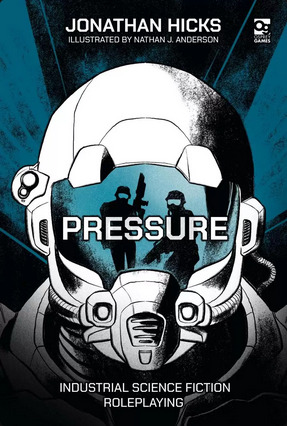

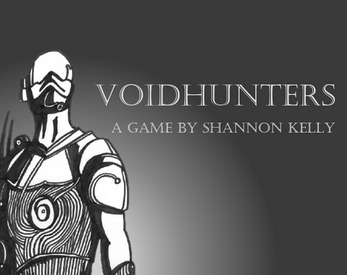

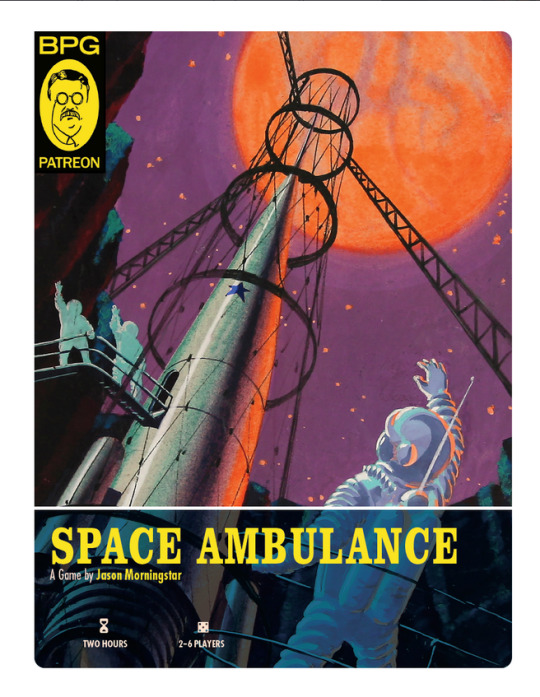

Comet Express, by Dice Doctor Games.
Inter-galactic delivery is perilous
Dangerous people need dangerous goods transported to dangerous places.
This is where Comet Express gets in. The safety of our delivery crew is secondary to the successful delivery of your precious cargo.
Why would anyone in their sane mind do this job? Three reasons. One Money. Two Thrill. And Three, who said you were sane?
Comet Express is all about just trying to get your job done and go home - alive. You're all part of a trading company that values its cargo over its crew, with a successful job being determined with the condition your cargo is in by the end of the job.
What's interesting to me is that I don't see anything on the page that says that you can fail. Your roll determines whether or not you avoid risk; but from what I can see, you can do well, do poorly, or somewhere in between. It's typically assumed that at least some of your cargo makes it to your final destination.
What's also interesting is that your character dying is no excuse to get the job done. Character creation is meant to be quick and simple, so if you die, just roll a few d6 and you'll have a new grunt to move the payload.
I think that perhaps the biggest weakness of Comet Express is the lack of roll-tables for the GM. There's a few in this brochure-sized game, but most of the outcomes are rather vague, and still require a lot of improv. If you're a GM that likes to come up with everything on your own, this won't be an issue, but a new GM might struggle.
Pressure: Industrial Science Fiction, by Osprey Publishing.
A science fiction roleplaying game of bringing law and order to the dark and dangerous corners of the universe.
Pressure: Industrial Science Fiction Roleplaying is a rules-light, story-focused game of facing the darkness at the heart of humanity’s fragile and claustrophobic existence – both on Earth and among the stars. An entirely standalone title, Pressure also develops and expands upon the mechanics and setting introduced in the Those Dark Places roleplaying game.
As highly skilled agents of Special Operations Squads, players are tasked with cleaning up after the Corporations – investigating links to organized crime, neutralizing rogue weapons research, negotiating with rebel leaders on orbital stations, and hunting down whatever that black-budget excavation team ‘awoke’ out in the Procyon Sector…
The universe is a dangerous and hostile place; the Hypercities and the Deep Black alike hide powerful foes. But you have the tools, the training, and the resources to face these dangers… you hope.
Pressure has a unique game system, although pieces of it sound familiar. There's Attributes and Skills that will add modifiers to your basic dice roll, as well as a stress mechanic called Pressure, which you will have to test yourself against every time your character suffers something shocking or disturbing. Already this sounds like a much better mechanic to me than a sanity or madness degeneration!
Thematically, this definitely looks like very hard sci-fi, with trained military operatives in space being the core focus. This is a space-horror game, although what kind of horror that is feels like it's up to whatever the table is interested in.
If you want to read a full review of the game, check out what Lowell Francis has to say about it on his blog, Age of Ravens.
Transit: The Spaceship RPG, by Fiddleback Productions.
TRANSIT takes place beyond our home planet, allowing you to traverse the unlimited depths of space and explore worlds outside our own galaxy.
Your role as an Artificial Intelligence is to inhabit an interplanetary vessel, manage your resources, and direct your crew. You’ll deploy your ship’s officers into the field, hunt down criminals, engage in interstellar combat, and deliver supplies and colonists to remote settlements.
You must rely on your resources to complete missions by acting through your ship, tech, and crew. Three different AI types – Combat, Command, and Support – lend themselves to varied and interesting game play, but it’s when an AI is paired with a ship that the real diversity in character creation comes to the fore.
TRANSIT is more than just an intergalactic skirmish game. When your interests and those of your crew are aligned, things can go very well, but when you and your crew come into conflict, they turn from asset to liability. They’ll think you’re insane, but you’re just trying to survive and complete your mission. How did it come to this? What will you do next?
While skimming the reviews for this game, I came across a big fountain of praise for TRANSIT's index. I love a good index, and am often saddened when a game has a poorly organized index, or doesn't have one at all. A book that you can reference well is infinitely easier to use.
On top of this, TRANSIT feels like a really unique combination, as it's both a skirmish game and Powered by the Apocalypse. Those are two things I don't normally think would be put together! It's also got a really unique perspective, since you are playing ships, rather than the people inside them. Is your AI going to be human-like, or something completely different? Find out in TRANSIT.
Voidhunters, by Fox Tale Games.
It has been forty years since the end of the last Great War, in which the Espiri Empire consolidated victory against Salvatori forces. The war was hard-won – planets were bombarded, resources were leashed to build grand war engines and vast voidborn battleships, and though the embers are slowly burning out, the winds of rebellion are relentless in stirring dissent.
But the war is of no concern of you and your crew. You are voidhunters, freelancers tasked by government and private clients to search for treasure in the depths of space. It’s dangerous work, but it pays the bills, and it’s always interesting.
From empty war hulks drifting powerless through space, to locked-down laboratories hiding unfinished weapons, tech and viruses, to the ruins of the Asar, the ancient space-faring civilization that came before your own, every episode of Voidhunters can take you and yours somewhere new.
Voidhunters feels a little closer to science fantasy, because it describes itself as a soft sci-fi setting, with magic and mechs. It's inspired by media such as Cowboy Bebop, Rogue One, and Firefly, where danger is supposed to be constantly present, while opportunities to be a hero are still around the corner.
The game uses d20 dice pools, and characters are a collection of Abilities, Skills and Talents. Ability scores determine your target number to roll under. Attributes & Skills give you dice. Talents are special things your character (and only your character) can do.
An interesting extra detail in Voidhunters is that matching your target number is even better than rolling under; it reduces the number of threats the GM can roll at you, and allows you to set yourself up for a better chance for the next time you roll as well. Otherwise, the GM will be able to collect threat dice to make things harder to do, or even more dangerous if they feel like it.
If you want a bit of action movie pulp in your space drink, maybe consider Voidhunters.
Free Spacer, by Christoph Sapinsky.
Free Spacer is a contemporary science fiction tabletop roleplaying game. It leverages the newest space sciences, takes into account biotechnology, and brings the internet to the rim of the quadrant.
As a Free Spacer, you’re a crew member on a small starship, an outsider, and a contractor. You’ll explore new worlds, investigate dangers, negotiate contracts, operate your starship, and do science!
As the Game Master, you have a wealth of tools at your disposal to build whole worlds and manage the machinations of sector factions in the ongoing Cold War. You’ll be able to easily run conflicts, spaceflight, fabrication projects, and other challenges, while quickly generating new locations and characters.
Play to find out how the crew gets the job done, the choice they make, the rules they break, and the length will go for their Patrons.
The author of Free Spacer says his principal purpose of the game was to make it feel like science fiction, and everything I'm seeing from it looks like hard sci-fi. The setting is a deeply imperfect future; no faster-than-light communication, a sector-wide cold war, and the need to negotiate contracts for every job.
The game uses 2 different kinds of dice: d10's and d6's. d10's contribute to your chances of success, while d6's contribute to your chances of failure. All of the rolls are player-facing, with the GM contributing threats and complications, which definitely feels a little reminiscent of Star Wars FFG, down to the non-binary dice results. You can succeed, you can miss, but you can also have a little bit of both worlds, which I think has the potential for nuanced storytelling.
Space Ambulance, by Bully Pulpit Games.
Space is a huge inconvenience. It’s big, it’s dangerous, and it is between you and anywhere interesting.
Once upon a time it was so outrageously hazardous that people traveling through it were killed now and then just for being there. Of course today spaceships are safe and sensible and no one dies in old-fashioned ways like “hull depressurization” or “reactor explosion”. Today spaceships are smart - smarter than you and me - and they are carefully built with safety in mind. You are far, far more likely to be killed by falling out of bed than you are by a spaceship failure.
And yet.
Sapient beings are amazingly fragile and incompetent. We touch things we are told not to touch. We eat too much, or too little. We make poor choices about who to make friends with. We fall out of bed. Sometimes, through no fault of our friendly and safe spaceships, we get in trouble in space.
When this happens, every second counts. You need to call an ambulance - a space ambulance.
Space Ambulance is a game about the dedicated professionals of the space ambulance services. You will explore the lives and loves of the crews, both on the job and off, as they perform dramatic (and not so dramatic) rescues, fill out paperwork, and await their next thrilling (or not so thrilling) call.
Space Ambulance advertises itself as focused on the drama between the characters, so I'm guessing it might be something like Grey's Anatomy - in space! Bully Pulpit Games in general intrigues me with a lot of the concepts they put forward, so I think that whatever you pick up from them, you're in for a solidly good time.
Xenopolitan, by Willy Elektrix.
Xenopolitan is an RPG about everyday life in an alien metropolis. Live the life of an extraterrestrial person with real world problems. Play as a human or extraterrestrial entrepreneur, student, artist, social worker, politician, reporter, criminal, detective, or anything else, and experience life in this galactic future-scape.
Setting: The year is 2099. Ingress is a city with 90 million people from thousands of different species and planets. It flies in the skies above Earth and is a hub for extraterrestrials conducting business with various Earthling corporations and governments. Players are denizens of this sprawling, cosmopolitan city, and their backgrounds and goals can be as diverse as the city’s population.
Xenopolitan really does feel like an alien slice-of-life rpg. The entire book is dotted with in-world excerpts, like newspaper obituaries, reviews of various artists, and even dating profiles for NPCs!
The game uses Fudge Dice, also known as Fate Dice, if I'm not mistaken. It also uses a d10 as a Luck die, which doesn't really contribute to success or failure, but ether adds a benefit or a complication. The things you'll be rolling for appear to be rather mundane things, like figuring out how to break up with your girlfriend, or trying to pass your driver's test.
At it's core, Xenopolitan is about making it in a big, big city. Each character will have personal weaknesses and drawbacks that they'll have to work to accommodate or overcome, such as a criminal record, a responsibility to take care of someone else, an undocumented immigration status, etc. If you want to mix the speculative, goofy elements of sci-fi with the mundane, everyday struggles of modern life, you might like Xenopolitan.
Additional Cool Things...
Last Fleet, by Black Armada Games.
Arkyvr, a toolkit for Mothership that has players cast as a documentary crew.
Holdfast Station, by Lampblack and Brimstone.
Space And Stars Rec Post
Space Adventures Rec Post
Space Westerns Rec Post
Space Fantasy Rec Post
If you like what I do, you can always leave a token of appreciation at my Ko-Fi!
#space#science-fiction#working-class#tabletop games#indie ttrpgs#game recommendations#dnd#asks#indie ttrpg
90 notes
·
View notes
Text
So as to not flood the notes of a post with a really good ask, I'm making a separate post for this, inspired by this question by @john-liberal:
Okay, so my big theater of the mind rant, at its simplest, boils down to the fact that D&D 5e does not, by its rules, actually in any way support theater of the mind play and the arguments of people who would claim otherwise boil down to either ignoring the rules or putting more work on the GM (either in terms of adjudication or forcing them to come up with their own rules).
D&D 5e runs on a grid. Theater of the mind in the context of D&D 5e means closing your eyes and pretending that the grid doesn't exist, and then all the players will fumble in the dark trying to communicate to each other where their characters are situated at the moment in relation to each other with zero visual indicators. Something which, famously, never leads to disagreement or ambiguity.
D&D 5e's rules have been written in such a way that they care about exact positioning and distance down to 5 feet. The rules have been written in such a way that assumes the average character to take a space of a square whose dimensions are 5 feet by 5 feet, and everything else is scaled appropriately. The game even gives out exact numbers of "how many medium characters can fit around a character of this size" that map out exactly to the dimensions on a 5 foot square grid.
The game is heavily opinionated about exact distances and what little it does to offer players in terms of support for running gridless does not make up for the fact that the game basically assumes a grid to be there.
Now, the thing is that it's relatively easy to steal from other games that actually make running gridless easier: but D&D 5e does none of that work for you. So as written D&D 5e is still a grid-based tactical combat RPG where the advice on running it theater of the mind boils down to "uh I don't know. Pretend the grid isn't there I guess? Surely this won't lead into ambiguity as people are unable to visually indicate position in way that resolves that ambiguity."
And yeah, other games even at the time of 5e coming out had already figured out how to do this, so this is not like some mysterious technology. Most games, even gridless ones, still benefit from some way to represent the game state visually so as to resolve ambiguity, but that visual representation does not need to be a map with a 5 foot grid if the rules have been written with less granularity in mind (and actual consideration for how to adjudicate for things like movement, areas of effect, and ranges with those granular distances).
198 notes
·
View notes
Text
Why You Should Try Eureka: Investigative Urban Fantasy Part 10: It Has Intense Action
This is part 10 of a multi-part series of posts about the awesome features of Eureka: Investigative Urban Fantasy, in no particular order.
Find the earlier parts here:
Part 1 Link: We Worked Hard on It!
Part 2 Link: It's Easy to Learn!
Part 3 Link: It's Easy to GM!
Part 4 Link: It's Easy to GM and Supports Narrative and Roleplay!
Part 5 Link: It Revolutionizes Investigation and Mystery Solving in TTRPGs
Part 6 Link: PCs are Not Just Mystery Solving Automatons
Part 7 Link: Excellent Time-Keeping Mechanics Keep the Pressure On
Part 8 Link: Fun and Easy Character Creation
Part 9 Link: Themes of Disability
For a while in its development, Eureka had a section dedicated to combat, but now that section is more broadly called “dangerous situations.” It’s rare, but dangerous situations will inevitably come up. The question is, will the PCs be prepared for them? Eureka has rules to cover everything from gunshot wounds to car crashes, from falling off buildings to drowning. If something bad can happen to a person, there’s probably a section in the rulebook covering how it would affect a Eureka PC mechanically. A lot of the times the answer will be they die, but how fast they die, and what they can do to save themselves in that time, is crucial.
Eureka takes a very “trad RPG” approach to this sort of thing, where violence and other dangers are something highly lethal, and therefore best avoided if the PCs are smart, but that the nature of what they’re doing means that it’s bound to happen eventually, and therefore the game rules need to provide a lot of “tools” and options within those situations, thereby creating agency over whether they live or die. PCs do not necessarily have to have “good” combat stats to survive, as many players so far can attest. It encourages them to be clever and cautious about things, and allows them to exorcise that cleverness and caution, without bogging the game down in too many numbers or charts.
Weapons will usually take any character down in one to two hits, and even when unarmed, characters have a wide variety of techniques that they can attempt, including the world’s first ever TTRPG grappling rules that are actually fun and advantageous!
Guns are as deadly in Eureka as in real life, and the type of gun matters a lot. That isn’t to say the exact model makes a huge difference, that would be too granular for what we’re attempting to do. A Glock 19 and a Beretta 92 would both fall under “Semi-Automatic Pistol” and function identically. Trust us, this all runs smoothly once you read it.
Bullets do 4 Penetrative Damage each, and most firearm categories are capable of firing multiple bullets within a single turn, each rolled separately. Direct hits are usually fight-ending, but that isn’t as easy as it sounds. Even with a high Firearms skill, these shots are being taken under extreme duress, and factors like cover, distance, movement, etc. will affect them too. Most shots fired will miss, and you might think that would be boring, but it’s not because of the next thing I’m going to talk about.
The Woo Roll
Named after director John Woo, the Woo Roll is a mechanic that’s makes it so that bullets don’t just disappear into thin air when they miss.

When any shot misses, a Woo Roll is made, which means something is going to happen that changes the situation as a result of that shot. (That’s one Woo Roll per turn, no matter whether one or thirty shots miss.) This roll determines whether the effect is good or bad for the shooter. A good result might mean that the shot hits a fire extinguisher behind the target, spraying him with foam and gas, disrupting his next shot. A bad result might mean the shot hits a gas line, and now the building is on fire. Usually the rule is that it’s whatever the most obvious and interesting thing within the confines of being good or bad for the shooter, but if there isn’t anything around, then we also have tables you can roll on.
Chase Mechanics
Combat is only likely to last a few rounds, but everything characters do in those rounds is crucial. These situations dynamic and deadly, and evolve rapidly, and if things are going south, run away!
Eureka has rules and incentives that can quickly shift the location of a conflict as one or more parties tries to flee. This works pretty similarly to combat, but, of course, the parties are moving and fighting across larger areas, causing the situation to evolve even more rapidly. Characters will have to overcome obstacles to keep ahead of their pursuers or catch up to their targets. These obstacles are rolled on a table that matches the environment the chase is happening in, heres a few highlights [images of entries]



As you can probably see, some of these obstacles can take a character out as easily as an enemy could. The kind of dynamic, cinematic car and foot chases these rules create are always something special.

#indie ttrpg#ttrpgs#ttrpg community#ttrpg tumblr#rpg#ttrpg#eureka: investigative urban fantasy#eureka#john woo#hard boiled#action movie#action movies#tabletop#noir#neo noir#tabletop rpg#ttrpg design#indie ttrpgs#eureka ttrpg#hong kong
68 notes
·
View notes
Note
who are the smartest hockey players in your mind right now? whether that’s in an academic sense or hockey sense or both
hmm academic achievement is pretty straightforward, you could google which guys have college degrees and there’s some interesting stuff! in terms of hockey iq, all of these guys are pros. if anyone didn’t have genuinely elite, pro-level hockey sense, they’d get killed on the boards out there in a second.
but honestly my favorite kind of Smart is guy who understands how to play a complete game, and I am nawwwt talking academics or hockey. there’s a whole other game out there to be played - and won - and some guys understand that better than most!! and for that, the current leaderboard in my opinion:
#1 will smith hockey
#2 jack hughes
#3 nate bastian!!!
#1 Currently leading - Will Smith hockey
WSH is still new to the scene so who can say how long he can keep this intangible point streak going BUT:
every guy he rotated in and out of the sleepover room ended up surviving the trade deadline (he’d clearly clocked who would be worth investing into)
has endeared himself to not just every single teammate but is also allegedly quite beloved by the equipment guys and rink staff
plays along well with all the sharks social media tiktok trends, etc. he has excellent camera awareness, for example, some guys simply looked down at their end of year ‘awards’ but Will immediately made sure to face the certificate to the camera. (is aware of camera views on the ice and off the ice)
has managed to remain a mystery to the dating gossip sphere, k-pop idol style
some good stuff in this post, namely the notetaking parts and preparing for the animal question in the draft
and of course, has made the highly talented but also windshield-punching future of the franchise entirely indebted to him in ways beyond mortal comprehension. what are you gonna do, send wsh down to the AHL? and leave his unhinged attack dog mack c out there to argue with teammates in practice and have meltdowns by himself on the bench? no way. wsh stays up, and everyone stays happy.
#2 Jack Hughes - perennially good, but has also fumbled a couple plays
part of it is just classic middle child ability to play both sides without ever actually committing to either, but that boy had everrrry single NTDP classmate eating out of his sweaty little palm (voted captain by unanimous vote!). he understands how to sprinkle sugar, jusssst right!
I do find it interesting when he accidentally overplays his hand. It perfectly mirrors his on-ice flaw of when he tries to do too much and then his game falls apart (as noted by hockey scouts & Sheldon Keefe alike). BUT I think the flops are important because unlike his subtle plays that might go entirely unnoticed, these give us a little more insight into how he does it - or at least, tries to set it up.
famously got the devils to draft his special little guy’s special little guy (trevor z’s billet brother) but then moynihan turned out to be basically nothing to the devils in the end (see: his Elite Prospects page)
tried to use 4 Nations as his and quinn’s personal olympics campaign (kept emphasizing how sooooo young he and quinn were, which was a complete turnaround from how he usually describes quinn as mature/experienced, or even himself as unphased/seen it all. kept referring to himself as an ‘01 birth year, and auston and eichel as ‘97s to really drive the point home!! god, you don’t want those old men born in the 1900s do you, USA hockey? I’m good for two, maybe even threeee Olympic cycles!) unfortunately quinn was too injured to play and jack flopped at 4 Nations
#3 Nate Bastian
Fourth line grinder (literally called the ‘Meat Line’) Nathan Bastian? yes, and I’m not even kidding. here’s the thing. there are four audiences for a pro athlete:
1. Your coach(ing staff) & GM
2. Your teammates
3. Sports reporters/PR Team
4. General audience / fans
When I say Nate Bastian plays a complete game, I do mean complete - he has a FULL SWEEP of all four audiences.
First Audience: he understands what role coaches see him as, and commits to it. doesn’t oversell himself. takes hits and gives hits without complaint.
Second Audience: top players automatically rank high in team social hierarchy, but less skilled players have to work for it. nate CLEARLY plays a great locker room game, to the point that he sits next to jack (and you knowww locker room seating has a ton of unspoken politics behind it) and is universally loved by his teammates.
Third Audience: this guy is so loved by Jersey beat reporters that they sought him out to interview while he was literally playing for a different team! the PR team sent him to the VMAs! also in this 2019 axe throwing video the producers/video editors clearly like him, even though he’s just another no-name grinder: they start the video with him, setting him up as the audience surrogate. they keep his self name-drop in the final edit, while literal jack hughes is in the video and HIS name is never said out loud. they kept in his funniest bits and edited out whatever was likely more boring filler commentary. (side note: you can also see Nate’s Second Audience work was already at play, because little pre-rookie Jack was already very aware and intrigued by Nate). By having video editors who love him, surely now you can see how that sways the…
Fourth Audience: how can you not love a guy that the coach commends! how can you not love a guy that his teammates adore! and how can you not love a guy who always gets the best possible edit from the producers! he’s literally made a clean sweep. all while just “being himself” seemingly effortlessly….
and that, my friends, is called playing smart.
#thanks for the ask! <3 I like…never get asks so it’s always exciting lol#will smith hockey#jack hughes#nate bastian#Ask#post
38 notes
·
View notes
Text
Lady Tabletop's Primer for Getting into Tabletop Roleplaying Game Design Philosophy
Sam Dunnewold over at the Dice Exploder podcast has posed a fun question to his discord server: where would you tell people to start if they wanted to know more about TTRPGs and design?
First and foremost, I'd tell people to start with @jdragsky's article about Systems of Relation.
With the benefit of hindsight, I can now understand that the games we played on the playground were identical in nature to the tabletop RPGs I would grow up to play and help design.
Next, check out Thomas Manuel's analysis of the Axes of Game Design over on the Indie RPG Newsletter.
So the basic exercise is trying to figure out the standard axes or spectrums on which every game can fit. The idea is for these axes to be as descriptive and objective as possible.
Thirdly (and lastly for the purposes of this blog - it's entry-level, not comprehensive), check out this reddit thread about lonely fun.
The Lonely Fun is all of the stuff you do as a part of your hobby away from the table, in any way you might engage. For D&D 5e players, this is usually building complicated and elaborate characters on the page, pouring over the books for new races and subclasses, figuring out fun new combinations, and carefully crafting characters.
Read those? Now check out BALIKBAYAN: Returning Home by @temporalhiccup
Will we be able to outrun our Masters and those who hunt us down? Can we use our magic to bring about the rebirth of the city and all Elementals? ill this be our RECKONING or our HOMECOMING? That’s what we play to find out.
Why I make these particular recommendations below the cut.
All of these recommendations are hopefully all entry-level. I tried to stay away from any essays, blogs, or articles that reference game movements you may not have heard of or that require tons of reading before you can even read my recommendations. Some do have links to other stuff, and if you're enjoying the writing, definitely go down those rabbit holes! These are a tiny, tiny portion of my "TTRPG Homework" folder where I save essays, podcasts, etc that have helped me in my own game design journey. I'm always happy to share more, just ask!
The essay on Systems of Relation put into words something I had been thinking about the more I got into indie games/design: I've been playing my whole life, and ttrpgs are just another piece of that. I think it's crucial to break out of the framework of people trying to define play and games into neat little categories. Will I ever write a game as good as the ones I played in the backyard with my siblings? Probably not, but I'd like to find out.
Now that I've told you to stop trying to categorize games, we have an article about trying to categorize games. But I do like Thomas's assessment and examples of using game design axes. I think as designers it's important to figure out the things the game is trying to do and communicate, so that we can make sure it does those things well.
Lastly, I know 5e gets a bad rap (and it's gotten it from me, too!). But the concept of lonely fun has stuck in my craw since I first saw this thread. It's why some people prefer to GM (and therefore why GM-less games might not work for some people). Not all games are going to have lonely fun, but the ones that do are still going to appeal to people! This thread was key for me in terms of considering that no game is for everyone, and it shouldn't try to be, and also helped contextualize the enjoyment I get from the occasional high-prep game.
Balikbayan as a recommendation was a no-brainer for me. I'm not going to say it's the most elegant or tight of Rae's work, but it's the one with the most heart for me. The story this game wants you to tell is so clear, and as an introduction to "Belonging Outside Belonging" as a system/concept/design philosophy. This game really sings in its character concepts and emotional play.
If you've read this far, congratulations! I've been enjoying the DE podcast (even when I don't agree with some of the takes) and the discord has been a cool (if at times intimidating) place to hang out. I've had a hell of a game design journey this year and I'm so excited to keep learning, and to see what media other folks participating in this blog carnival recommend!
To sign off: my best advice to designers, especially those starting out can be boiled down to three things:
When in doubt, simplify or make it silly
The two cakes theory is your best friend - game design is not a competition
Not everything has to be finished. Not every part of the creative process is fun. Find the balance between these two truths (you're going to have to do that every day).
Best,
LT
568 notes
·
View notes
Note
O Derin, author of cool works, producer of red herrings, master of games: how do you run a tabletop game while making it fun for the players without getting overwhelmed? I've considered trying to be a GM for my friends, but I had a bad time trying to follow a DND 5th e module (especially the combat), so now I'm worried about being able to keep on top of things and narrate well. And also combat with more than like three types of enemies to keep track of makes me feel like I'm taking way too long to remember what they all do.
I ask you specifically because you write good and create cool settings and characters, and run at least one game that people seemed to like. I like to think I'm decent at coming up with stuff, but not having the ability to go back in a tabletop game and edit to make it better is daunting, and tabletop roleplay is different from writing anyway, so how applicable are those skills, really?
I give Diesel a parasocial hello, and also the chickens, and hope you're having a good [time of day] 👍
Don't run DnD then. If the system is too crunchy, use a different system.
I like FATE, personally, as a flexible and fairly light system. If that's too crunchy, you could go lighter with Kids on Bikes, or even something very bare like Lasers & Feelings. If you want something in the crunch range of DnD but more focused so you don't get overwhelmed with extras and edge cases, something like Vampire: The Masquerade (or Requiem, whichever you prefer) might work. If it's the concept of combat that's overwhelming you, run something that's not focused on combat. If you're lucky and have a party that likes roleplaying, they'll roleplay with each other and do a lot of the work for you.
If this is your first time, the concept of shopping around for an rpg itself is probably overwhelming (since you won't have the context to know what's good or bad for you yet), so my recommendation would be starting with FATE or with Lasers & Feelings and running a very short game, between 1 and 5 sessions long. This game does not have to be an epic masterpiece of art. It is for you and your players to feel out how you play and what you like. Once you're done, run a longer one; same system, new system, short or long, whatever you're feeling. There's no need to be overwhelmed because there's no need to go big or complicated.
115 notes
·
View notes
Note
I'm new to Leafs hockey and im trying to understand all the hype about about how much Auston and Mitch are such a big deal as a duo? I stumbled upon your blog and it seems like you'd be in the know 😂 please help i wanna be in the know!
JFKJDSKLFS LOL. i fear i've made the two of them and their bond my entire personality at this point and made it my mission to document everything they do the past couple years so fsjdfkls YOU'D BE RIGHT. i could probably write an essay about this, but if you just want to know about their hockey, they play very complementary styles as players, they wanted to play together for a long time after bonding as rookies but weren't allowed, and then once they did, both of them have had pretty insanely impressive careers next to each other. i think the really really short answer to this question of why mitch and auston are known as such a duo is because they want to be, lol. they're close friends, they love playing hockey together, and they use their leverage as elite players to be on the same line as much as physically possible season after season, no matter the gm or coach. but i'll give a longer answer abt their hockey too.
auston's a wonderful two way centerman who can score 60+ goals a year BECAUSE he has one of the best playmakers on his wing, and their chemistry is insane and they've been nurturing it for ageeeees, basically since the start of their careers (peep this warmup routine they started around.. 2018? i think? where they spend the entire last 2 minutes just passing back and forth and feeling good abt themselves ((they also have a ton more small rituals together in warmups but i digress)). it's a highlight when you see leafs hockey in person). one of the things that makes them compelling to me is that their positions are actually flipped from the usual goalscorer/playmaker combo, like usually a center is the more pass-first guy and your winger is the goalscorer but their tendencies are opposite so they naturally fit and embrace those roles. mitch is also really dedicated to the defensive side of the game though, both of their names come up in the selke convo, and it just tells you that the way they've grown as players over the years has really been rooted in the same philosophy.. like you know they talk the game and love the game and love to communicate. they're also on track to essentially be the two best leafs of all time (nylander will be the third but his game isn't as rounded out as theirs and his success isn't as tied to 1 specific person the way mitch/austons is ((or the way they clearly want it to be... like they WANT to be known as a duo and if you don't believe me... believe this excerpt from elliotte friedman where he says matthews has made it known he wants to play with marner longterm to the front office lol))). last year mitch and auston broke the leafs franchise record for most goals factored in on by a pair of teammates (and if you want to see every goal within that 240+ list, i'm posting them on twitter here as they go) and they're only halfway through their careers if they stay healthy (PRAY) SO LIKE.. they are on track to do special stuff for this franchise (they already have... like mitch became the fastest player to 700 points for the leafs earlier this season and auston's going to break HIS record this year just back to back... they get to break records in tandem like that).
if you want to know about their lore and personal connection off the ice, you can check out these primers i've made about them (first, second). although i haven't updated the second for the past 2 seasons, you can search my blog for #1634 and then #2324 (for the 23-24 season) or #2425 (for this current season) for content of them lately. if anything's broken or you're looking for something specific lmk, but they basically came into the league the same year and imprinted on each other and have wanted to play hockey together ever since tbh. whenever the leafs get stale and need a change up, they'll swap them and give them different linemates, but it won't last long in all honesty (and they've been outwardly annoyed abt it before too), lol. they're always gonna revert back to what they know works, even though they have their down times as all line combos do. don't let this years stats fool you. auston's playing injured and way under producing for normal/has missed a lot of time. it's not exactly a typical year for them, but they're still a trustworthy combo in all zones against any line in the league and morre importantly..... they just enjoy playing hockey together, lol. you see lots of players around the league that want to be teammates forever, but these guys want to be LINEMATES forever in essentially every situation (neither of them ever leave pp1 unit and auston's started penalty killing this year and you'll never guess who they put him out there with a lot of the time lol) and are unhappy when they're not for any extended stretch of time.
sorry for a mini essay here, but that's mostly just the hockey part. i hope it somewhat answers your question and i hope you enjoy exploring more about them!!! i don't think there's a dynamic in the league quite like it, on or off the ice, which is why i love them.
#easks#1634#MY BEST BOYSSSS#THEY LOVE EACH OTHER A LOT. AND HAVE GOTTEN VERY PRIVATE OVER THE PAST COUPLE YEARS BUT.#they fool no one.#theyre each others guys
25 notes
·
View notes
Text
Dev Diary 17 - Complex Dice Tests
We lied! Today was going to be about the meta-campaign mechanics, but we did a really cool system overhaul instead and we simply have to tell you about it.
Basically, we overhauled a part of our dice system in a pretty major way. It’s involved some fairly dramatic changes to how rolls are done, though all the other systems we’ve created plug pretty seamlessly into it (and as we’ve integrated it, it’s actually let us effectively cut systems now that they’re covered automatically by the new system). It’s one of the deftest bits of game design we’ve ever done and we gotta brag about it.
Development of the Previous System
One of the things that has been a problem for Torchship for a long while is that it wanted to be a dice pool system (roll X dice, looking for Y amount of Z+ results), which doesn’t just have binary pass-failure outcomes. We wanted players to feel competent in their fields, but we also needed there to be interesting difficulties and complications so that stories aren’t just a stateful progression of experts effortlessly performing the tasks they’re experts in.
This is surprisingly difficult!
Nailing down exactly how it would work has gone through about a half-a-dozen iterations, all of which always felt like hacky temporary solutions. The version we came up with before this, which the game has been using for about a year, involved two thresholds on each roll; a “Difficulty” to do the thing, and a “Complexity” tacked onto it that you had to reach to do it without any extra problems.
This served the purpose, but its various incarnations slowed the game down a lot more than it should have, and put too much stress on the GM to work out what these two targets would be and how complications would emerge from it. It was a clunky solution which required a lot of experience to use properly, functioning just well enough to build systems around without ever being stellar on its own.
It Must be Tuesday
While working on Must be Tuesday: Revived Edition, which uses a similar dice pool system, my wonderful editor Lexie came up with a really clever system while we were working out the dice odds. In that game, you have a “Skill” target from 6+ to 3+ with a variable dice pool and a number of Successes needed.
Our partial successes there comes from a concept of ‘Scrapes’; dice which are 4+, but don’t meet your Skill target. If you reach the number of Successes you need when you add your Scrapes to your rolls meeting your Skill, you get a partial success! Brilliant, isn’t it? That means everyone has a chance to get by on even hard checks using their worst skills, but it’s never easy.
When we poked at Torchship stuff after testing that system out, we found ourselves wondering if something similar wouldn’t fit here as well. It wouldn’t translate 1-1; Must be Tuesday is about teenagers fighting monsters in a horror/comedy setup, where nobody is doing anything really complicated, and even the people who are the best at things are still only as good at it as, you know, teenagers. It’s not a good tone fit, but it inspired the system we used.
Complexity Certs & Complications
The solution we came up with, which we are so proud of we bumped a whole dev diary for it, is the idea of Complexity Certs.
Basically, we’ve ditched the previous Complexity target from before. Your dice Test just has a single, easily determined Difficulty. In ideal circumstances, you roll a number of dice determined by the tool you’re using, needing to get results over your Cert target. Get as many of those as the Difficulty, you succeed, otherwise you fail. Simple binary outcome to a simple problem.
But you’re playing cosmonauts. You know, you boldly go places you probably shouldn’t. You don’t face simple problems.
When the GM calls for a roll, they can tack on Complexity Certs in accordance to the situation you’re facing. Essentially, they’re saying this roll is a test not just of the ‘Primary Cert’ that determines if you pass or fail, but it’s also a test of some extra skills that have come up because of the number of moving parts involved in the situation.
So while you still only have one Difficulty, you need to meet that difficulty using multiple dice targets to succeed without qualifiers. If you just meet the difficulty on your Primary Cert, but not the Complexity Certs, then the GM can hit you with a Complication that can emerge naturally from the Cert in question. Conversely, you could end up in a situation where you have a better value on your Complexity Cert than the primary, so you could fail, but avert other disasters.
Or you could fail at both, and now you have two problems!
This system elegantly compresses a bunch of things the system needed to do into one quick judgement call by the GM in the moment. We don’t need to have specific penalties for working remotely through a robot, working in a spacesuit, or doing things in low gravity; the GM can just add the Drone Operator, EVA, or Cosmonaut Certs to the Test as Complexity Certs. There’s no limit to the number of Complexity Certs that can get added either, so you can sum up really complex situations with a single roll.
It also made the game’s group test mechanics much simpler and more impactful. Helping can be a complex game design challenge; you want people to be able to give each other a hand, but you need to make sure people can’t simply do it on every single roll to avoid slowdown and the trivialization of gameplay challenges. The way Help works now is allowing you to lend a friend one of your Certs to take on a Complexity Cert, basically monitoring a potential problem for them while they focus on the main task.
As you get XP for Helping or being Helped on Checks where somebody is rolling with a higher Cert than you, you might want to point out potential problems with people’s plans that relate to your expertise as they come up so you can be the one to solve them. It also means that the presence of a Complexity Cert acts as a prompt for characters to step in and help one another out, and rewards a properly multi-disciplinary crew working together to tackle complex problems.
You know. Like… like a Star Trek.
Examples
The example we use in the game rules is as follows.
Let’s say you are at a shooting range with your laser pistol, and you want to shoot a target. That’s a straightforward Sharpshooter Cert test. You either hit the target or you don’t. Easy!
But let’s say you’re doing the same thing but in a combat situation where you might get hit in return. The GM can (and is encouraged to) add the Soldier Cert as a Complexity Cert to the roll; Soldier is the Cert that covers tactics, movements, and the use of cover, so if your dice meet the difficulty using your Sharpshooter target, but don’t from your Soldier target, then you probably hit the target but exposed yourself to danger in the process.
Suddenly, we can see the difference between an Olympic target shooter and an infantryman.
Or let’s say you’re a guard posted in a reactor room; if you are doing some shooting there, the GM could throw in Damage Controller as a Complexity Cert to represent the chances of you breaking something vital in the antimatter reactor by throwing lasers everywhere. Suddenly, you have a really good reason to cross-train your guards in engineering skills, at least enough that they know not to shoot the matter/antimatter exchangers.
Or maybe you’re trying to incapacitate an unfamiliar alien creature without killing it; the GM could add Life Scientist. What if you’re doing it in a spacesuit? Add EVA. Knocking out a piece of machinery? Add Technician. Aiming a remote turret instead of doing it yourself? Drone Operator.
Which means you could, conceivably, be in a spacesuit operating a tablet controlling a gun drone non-lethally shooting a strange device on a strange alien in a combat situation inside an engine room… and it all happens with one roll and no need for infinitely stacking penalties.
Knock-On Changes
The biggest knock-on change this has caused is a need for finer gradation between Certs so that the differences come up more often and are less severe. For that reason, we moved the game to d10 pools from d6s; yes, this was an enormously annoying change to make through our draft, and we’re still working out how to rebalance advancement through it. It also means we have to do yet another pass through the Traits, which we were midway through… oh well!
(We have a cool new lever that’s come out of, actually; we can have Traits just make Complexity Certs just not count in appropriate circumstances. Freefaller characters get to ignore 0g penalties, for example, which includes adding Cosmonaut as a Complexity Cert to a lot of rolls).
I’ve submitted Torchship to Metatopia again this year, and I’m really looking forward to running it on the other side of a year of rewrites and de-heartbreakerification. I’m confident it’ll go much better this time around.
Anyway, next Dev Diary will be about the Zinovians, and then we’ll do the meta-campaign mechanics. Unless something even cooler comes up.
74 notes
·
View notes
Text
how to run an OSR game
a while back i made this post to help people who were interested in OSR games but didn't know where to start, explaining the general design philosophy and going over a bunch of different OSR rulesets you can run a game with. so this is a follow-up post about how to actually run these (especially bc not all of them have much actual GM guidance)
note this is a highly opinionated post and some people from the more meatgrinder-y end of the OSR might take issue with this. but this is advice that works extremely well for my games.
how to prep situations and not plots
this is good advice for most games but OSR especially because OSR gameplay is so driven by player scheming: don't ever include "and then the players will..." in your prep, because you do not know what the players will do.
if your prepped scenario hinges on the players taking a specific action or the whole thing falls apart, you're digging your own grave as the GM. trying to account for every action the players can take is a trap, because players are creative and clever and their options are only limited by their ideas. that's the game.
so "prep situations, not plots" has become popular advice in TTRPG communities, especially OSR circles. but how do you actually do that
the most important elements of prep you want to figure out are:
what do all the NPCs involved in this scenario want? what social levers (wants, fears, habits, allegiances, guilty pleasures, relationships) do they have that the players can pull?
what will happen if the PCs never interfere? what conflicts and schemes are brewing in the background?
what locations are there to explore? who and what is inside them, what dangers and treasures are inside?
the best prep is stuff you can't improvise, or stuff that's unsatisfying when improvised. you should probably know monster stats ahead of time, know the layout of dungeons, that sort of thing. elements relevant to challenging the players are important to prep.
stop rolling for everything
coming from nearly any other TTRPG to an OSR game, your instinct when a player says "i want to do X" is "okay, make an X roll" through a skill system or a pbta move or something.
if you do this in an OSR game, you run into problems.
player characters aren't very strong. they have single-digit hit points, few if any class abilities, and whether they're carrying a crowbar, a grappling hook, a lantern, etc. is as impactful as their choice of class.
this is because the game is about using your head more than using your character sheet - the sheet just lists tools to apply your creative thinking to. scheming and managing your resources is the game.
and this means if a player has a clever idea, you should almost never reward them with a die roll to see if they succeed. a skill check is just a random chance of failure. instead most actions should succeed or fail automatically.
here's a good checklist to determine whether something succeeds:
is it something a normal, untrained person could do? if yes, you succeed.
could a normal person do it with the right tools, training and/or time to work? if yes, you succeed if you have any of those things.
if you don't have any of those, you can't. find another approach or get ahold of those conditions for success.
die rolls are for resolving uncertainty and risk. picture a version of 5e where there are no ability checks, only saving throws - dice you roll when something's gone wrong and you're in danger.
which leads into the next point...
communicating information
one of the worst sins of roll-based task resolution is when it's used to determine perception. players making informed decisions is the heart of the game, and they can't do that without information.
give information freely. if your character could know it, they probably do. try to do this too much. never gate information behind a die roll, especially the PC's surroundings.
part of this is always informing the player what is at stake. if a player's in a dangerous enough situation that success comes down to a die roll, you must let them know that before they opt into making that roll, and what the consequences for failure are.
OSR games are about risk management, so tell your players what is at risk when they make those decisions.
entering combat
combat is one of the most dangerous things in an OSR game - it's unpredictable, lethal, and entering it is always a big decision.
if you're coming from a game like 5e, often your first instinct when an encounter occurs is, "roll initiative!" but this is a mistake. you always, even when combat is about to start, ask players for their approach. do they fight? flee? negotiate? surrender?
because combat is so risky, forcing players into it unprompted fundamentally changes the dynamic of your campaign. keep in mind, once combat starts, you don't get any input between rolling initiative and taking your turn. your fate is up to the dice - your tactics matter, sure, but they can't save you from losing initiative, being crit, and dying from bad luck.
if players willingly choose combat as their approach, they should know the risks and what they're getting into. sometimes combat is the best way to achieve your goals, so it'll still happen.
#osr#nsr#d&d#ttrpg#also OSR stands for “old-school renaissance” since someone brought up in my last post that i never clarified that
45 notes
·
View notes
Text
Game Pile: Sleepaway
We’re going to camp! We’re gunna have a ball! We’re going to camp to get awaaay from it all!
Wait that song includes lyrics about being bitten by the counsellors. Hrm. Maybe American camp culture is bad. Anyway,
Content Warning: Sleepaway is a horror TTRPG which explicitly invokes the threat of both animal harm and child endangerment as part of its horror elements.
Sleepaway is a tabletop RPG by Jay Dragon, made in 2020, and released by Possum Creek Games. The core fantasy of it is that the players are camp counsellors at an American-style summer camp, a thing that does not exist here. There’s going to be nuance I miss, a vibe I don’t quite understand, I hope that’s okay.
Let’s talk about the basic, fundamental resolution mechanic in this game. Players take moves and those moves contribute to the fiction. The two most common moves are ‘take action, leaving yourself vulnerable,’ and ‘invite the Lindworm to act upon the group.’ These two ideas are introduced and explained on page 14, but if you’re not already familiar with the game it might feel like there’s something more to be done, something more to be explained.
Basically, the action economy is one where players have Strong moves (that advantage you and advance the story), Regular moves (that just advance the story) and Weak moves (that disadvantage you, give you a token, and advance the story). All the moves you can do are things that make the story move forwards, but you need to suffer before you do strong things, and there is a clean exchange between advantages and disadvantages, with the bad things in the story contributing step by step
This game is GM-less, which is to say it’s a game where there’s no single person whose job it is to facilitate play, manage rules and keep people on task or following a thread of narrative. This is a feature, not a benefit or a drawback; it’s just something about how the game is structured, and you may find that a good thing or a bad thing. Particularly, the game as designed is heavily interpretive and narrative-driven, which means that mostly it’s going to appeal to people who already wanted to sit around and tell stories with one another. For me, that’s always a hard sell, because I have that already, it’s called my friends. A RPG is something specific with a structure that relieves the pressures on people to come up with narrative on their own and instead exist within a structure that other people provide.
The game has a large amount of material presence, what I call stuffness. In this case, the game has the book, sheets for the camp, sheets for the characters, sheets for the setting, pencils and scrap paper (and lots of index cards), a deck of playing cards, tokens, and a conspiracy theorist corkboard with string and pushpins, or a large piece of paper with a lot of coloured pens. And here is one of the many ways this game pulls at me, in that my first reaction to this list of required material is that’s too much stuff.
But then they get to the corkboard and I’m suddenly on board.
I think the idea of a TTRPG played off a corkboard as the group character sheet rules! That’s such a cool idea, and using it to store character information or track resources strikes me as a really cool approach to a game design! I wouldn’t have imagined it was the kind of vibe for a game set in a summer camp, but again, I don’t go there, I don’t know how common corkboard conspiracy charts are.
I’ve spoken at length about the idea of getting people invested in your game as fast as possible, in what I tend to call the approach. I’ve also talked about the way that a game’s interface can be impeded by even small amounts of friction, and how quickly a game can get you invested in who you are and what you get to be. As much as people may dislike the comparison, my gold standard for this is Dungeons & Dragons 3.5, where a player is already invited to create a character with just the basic polarity of ‘race/class’ and a two page spread introducing all the core concepts to them. That is a gold standard, I understand everyone is not in a position to spend Wizards money. I am however, keenly mindful of how you start your book and what you present in the opening of that book.
The opening of Sleepaway is a discussion of design influences.
I have no association with Dream Askew & Dream Apart by Avery Alder and Benjamin Rosenbaum. I know they were used for another game, which was similarly loose that I spoke about before. I do not deeply understand the Apocalypse World engine by D. Vincent Baker and Meguey Baker, either. Nor do I know Chuubo’s Marvelous Wish-Granting Engine (though hey, dope, Jenna Moran, long time fan here), nor do I know Pin Feathers/Cloud Studies, or Sorcerer or House of Miracles or The Secrets of the Forbidden Isle or what the Wayfinder experience are. These are signifiers that are for communicating ideas to people who recognise them.
This page is, to me, a page for a designer to speak to other designers.
This isn’t even a bad page! I think it rules that there’s a part of this book that’s trying to draw connections in a design space. It’s like a bibliography, a sign of connection. I like it. I question its presence here, at the start of the book. In the context of starting this book, we get title page, art page, blank page, ISBN and all that good stuff, credits, author bio, design inspiration, table of contents, and that means that it’s ten pages before we get to ‘how to play.’ And if it’s not there to be read at the start of the experience, then why is it there? How much of the opening of a book are we supposed to throw away?
The question might well follow: What is more important to this game than getting players interested and engaged? Who should be reading this book first?
Now here’s the biggest issue I have in this whole game that I would otherwise spend quite a lot of time complaining about: The resolution mechanic for this game rules. It’s cumbersome and it’s ugly and it requires a level of memorisation I do not find comfortable and I think there are better ways to implement it, but this is a game which uses playing cards for its resolution and a hidden actor to resolve it.
See, after the Moves are done, ultimately, people are going to hit a point in the story where you run out of options and have to take the move Invite the Lindworm to act upon the group. This means that all the players close their eyes, and one player (chosen in secret) picks one of the top three cards in the deck to present to the group. That player then closes their eyes and knocks on the table, and players no doubt look up the prompt to see what the revealed card means. There are rules to what the Lindworm will try to do, which means that it will avoid certain kinds of cards if it can, and it will try to kill animals rather than people, adults rather than children, and children rather than the protagonists, in that order.
This mechanism rules. I love the way that the game’s mechanical structure depersonalises this horror, where there’s an explicit mystery to what will happen and a fear of what might happen, all told in the silence of the ritual as people close their eyes and focus on the thing that they know is about to happen. It is not the bang, but the anticipation thereof.
This mechanic kicks ass! It’s such a good horror mechanism! I wish it wasn’t as fiddly as it is to execute what with the table and the person holding the card having to make an important decision without being sure what people will do with it, and I wish it didn’t come along with all the other details in the game like the conspiracy board, but I love how this mechanism creates a ritual for the Lindworm. It is a thing that brings with itself terror and that terror is heightened by the way it is invoked.
Someone needs a token to do a Strong action, and this is the least bad option they can come up with for how to get one, for how to use their Weak actions. And then… people close their eyes.
The dark comes.
It’s a great mechanic for a horror game!
I think Sleepaway is about an experience I don’t have and is a little confused in how it approaches its ideas, a beautifully slick, sleek engine that is unfortunately gummed up with concepts that I don’t think it needs but I couldn’t rightfully say it could get rid of without knowing the designer’s intention. There’s a want to tell a horror story that’s inclusive and diverse in a genre that is famous for its othering and exploitation, and a focus on not recklessly incorporating cultural elements inappropriately that also puts the Lindwurm, a Nordic mythical creature, in the setting’s America.
But maybe I was always supposed to fixate on the things in this game that excite me, because as I said: The opening seems to be for designers.
Check it out on PRESS.exe to see it with images and links!
42 notes
·
View notes
Text
Mint Plays Games: What Pre-Generated Characters Can Do For You.
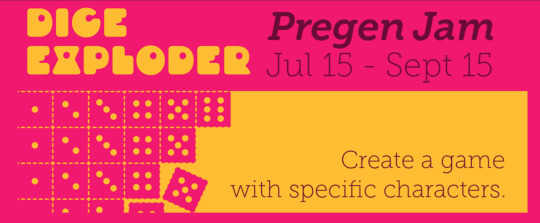
From July to October of 2024, the Dice Exploder Discord Server ran the Pregens Game Jam, a game jam all about using characters that have been created for a specific table, or that have been created to streamline the process of learning a game.
Incidentally, at the same time, I was setting up the playtest server for Protect the Child, and, primarily inspired by Yazeba’s Bed & Breakfast, I decided to run my play-tests using a pre-gen format: I’d run a series of sessions using pre-generated characters, that could be picked up by various players depending on what games fit their schedules. I did this out of necessity - my hours are all over the place, and I can’t consistently run games at the same times on the same days.

As we started play testing, I noted some interesting things happening among my players. The first thing I noticed was that the players latched onto the pre-generated characters fairly easily - and their attachment caught them off guard. More than one person told me that they were surprised that they could care so much about a character they didn’t write themselves.

The second thing that I noticed is that players were really excited to take ownership over a character. Certain character story-lines or backgrounds resonated with them, and as a result some of my play-testers are making a real effort to come back so they can see the next chapter of their character’s story. It’s really gratifying, knowing that there’s something in these pre-gens that has them coming back for more - it feels kind of like having a favourite character in a tv show or book. Since I’m the one who wrote those pre-gens, I won’t deny it does a good thing for the ego!
For folks in the Dice Exploder server, this might not come as a surprise, as I’m sure experiences in games like Chuubo’s Marvelous Wish-Granting Engine and Eat the Reich have both been hot topics in the ttrpg podcast sphere recently. These kinds of games are likely one of the reasons why the pre-gen game jam was such a hot event.
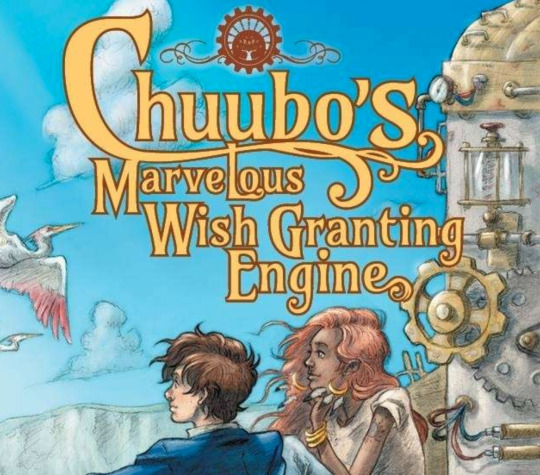

However, I think there’s some more potential that could be pulled out of this. I think embracing pre-gens can do a number of really interesting things for your ttrpg experience, both in one-shots, as well as in longer campaigns - and I’m going to digress about that, after I talk about four games that I used as experiments over the past month.

Lady Blackbird
I ran Lady Blackbird for the Open Hearth this past month. It’s a game that is exquisitely designed, because it makes the on-ramp for new players so easy. The characters written for the game are well-defined, with explicit personalities and goals that are designed to mesh well together and give the group reasons to both work together and engage in character friction. It’s also got some really stellar advice on improv, which was invaluable to me back when I was a first-time GM.
So much of the game asks you to turn to the players to build on the world around them. How does Captain Vance feel when Natasha talks about her pirate lover? Is Snargle intimidated or enthralled by Naomi? What kind of jail is the group stuck in, and why does Kale know a way out? From the get-go, the players are encouraged to throw in bits and pieces of the world, and the GM can then pick up on those bits and pieces and turn them back on the players, making the world relevant to the pieces that the players are interested in.
The group who ran it was great: everyone was willing to add to the world, and riff off of what had already been built. The characters sought out connections with each-other, and I found it rather easy to work in the elements that folks had indicated they were interested in - primarily butch lesbians, magical mishaps, and rebel activity.
The players also have a lot of creative control over their characters. You don’t have to stick with any of your characters’ pre-written goals: Natasha can give up on the search for her lover, Naomi can forego her quest for vengeance, and Snargle can choose to stop their witty banter whenever they like. As a reward for a big change in personality, the player immediately gains access to a new goal that tells us what they prioritize, and still rewards them for leaning into it. Every time I run Lady Blackbird, the players’ interpretations of their characters is different, and that’s what makes the game so re-playable for me.

Subway Runners
I also ran Subway Runners on the Open Hearth. Similar to Lady Blackbird, Subway Runners uses pre-generated characters, but these characters are randomly generated: their motivations, skills and equipment can be used to develop a personality, but those personalities aren’t customized with the narrative in mind. Of course, the narrative isn’t really planned ahead of time either - your characters will always go on missions in the subway tunnels and come across strange critters or magical problems, but the details of any given foray are also randomly generated.
This doesn’t really stop the players from making some really strong choices. One player noticed that both his character and another were looking to find the cure for immortality, so they turned it into a rivalry. Another player noticed that his character had been given a spider-silk suit, and made it a key part of their character’s presentation. The randomly generated mission told me that it would involve a bunch of raccoons in a Death cult, so I wove that together with the monster description to make the monster the raccoon’s interpretation of Death.
Overall, the pre-generated nature of Subway Runners is incredibly useful in making it a no-prep, easy-start game. I don’t think I’d recommend it as a first-time game in the same way I’d rec Lady Blackbird, primarily because I think the GM needs to have a strong understanding of Forged-in-the-Dark rules to keep the game running smoothly. However, I think Subway Runners definitely solves the time problem - you don’t spend precious game time creating a character, and a busy GM can still have an adventure put together in five minutes.
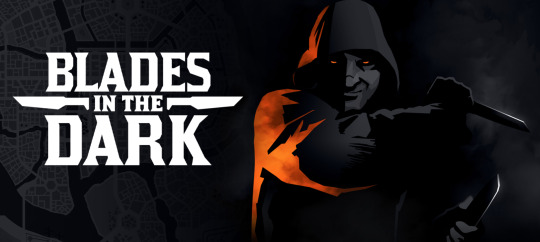
Blades in the Dark
I wrote up some pre-gen characters in Blades for my home group, pre-selecting the Smugglers crew, and taking a one-page mission out of Hour of Chains, a series of unofficial Scores written by A Couple of Drakes. The players showed up, chose a character from a pile, and wrote in their name, background, look, and a few pips. Their core stats, connections, and abilities were all chosen for them, and I told them that while they had to start at Brisco’s Noodle Palace, they could decide why.
The players had a lot of fun coming up with shenanigans, but at the end of the session, one player told me that they would have appreciated a fully-created character, complete with backstory. Another player told me that they weren't sure whether or not they were “allowed” to do something with the lore, as Blades has some lore built into the setting, and it’s hard to parse what is immutable and what is up to interpretation. I personally love coming up with the canon on the spot, but for folks who are new to this style of play, it seems that having some of that lore pre-defined might give them some confidence when it comes to determining what their character “would do”.
Compared to Lady Blackbird, I think this observation makes sense. Since Blades uses playbooks, I think the choices when it comes to motivations are made when the player choose a playbook. I had the ability to select the playbooks that I thought made the most sense for the Score I chose, but there were still enough playbooks available that all of the players had multiple options to choose from. Out of all of the sessions I ran with this experiment, I think that Blades was the weakest, and I think the reason for that is because I left so many pieces of the set-up undefined.
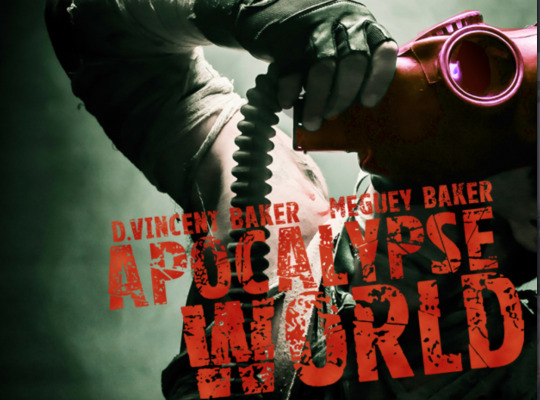
Apocalypse World
For Apocalypse World, I wrote up a very specific setting, and designed the characters using the Mad Max series and the Silo series as primary inspirations. The post-apocalyptic settlement was an underground bunker with levels sectioned off for various jobs. I chose a series of playbooks that resonated with the setting I had in mind, and pre-selected gear, followers, stats and abilities. I also wrote up three threats, with loose ties to at least two playbooks each, with the expectation that I could pick up whichever threat made sense for the playbooks my players decided to engage with.
In short, I did exactly the opposite of what the Bakers recommend in the game: I planned nearly the entire thing beforehand.
That being said, I think the session was a really strong one. The players were quite happy to pick up the characters and play into the conceits I’d designed into them, for the most part, although one person did a bit of toggling with their gear to more suit the character they wanted to play. It took a little bit for folks to warm up to the confrontation mechanics, but when they realized how much the game encouraged turning on each-other, we were off to the races.
We ended the game with scenes that pointed to a snapshot of a larger story, which felt fitting despite the fact that I typically see PbtA systems as games that really reward you if you stick with them for a multi-session campaign. However, I went into the session expecting to play a one-shot, and we got a really fruitful experience out of it.
The Takeaway.
While I can still see the merits of creating your own character, and I certainly won’t stop running games using that format, I think that I’ve developed a newfound appreciation for pre-generated characters, whether they are built into the game, or they’re made to make the game easier to learn.
Pre-gens also solve a lot of problems that can be common in new tables: your characters already have a reason for working together, you can learn how to play the game using a template that’s built to work well, you have more time actually spent playing together, and you can engage with a story that your character is designed to be relevant to.
Pre-gens also give the GM a chance to build their own desires and boundaries into the story from base one: in Lily’s Angels, a pre-gen setting for Protect the Child, I was able to bake in the themes about transphobia, religious violence and state violence into both the setting and the characters. The people who sat down at that table sat down because of those themes, not in spite of them. In all of my one-shot games, regardless of how much of the character was written beforehand, the nature of the game meant that the players still had agency over who their characters were and what they did. The background was a jumping off point - it gave everyone a base to work from, and as time went on, they found their own reasons for engaging with the story as it was presented.
Additionally, in all of the games where the characters had strong backstories and well-defined personalities written into them, the players found reasons to really care about what was put there on purpose. A player who picks up Cyrus Vance in Lady Blackbird might pick them up precisely because they’re in love with Natasha, and a player who picks up Sal in Yazeba’s B&B probably wants to engage with the artist’s struggle to find his signature style.
If you go the extra mile, I think you can use this set-up regardless of the game. In Apocalypse World, the work is a little more than normal, but I don’t think it’s terribly much. In Rotted Capes, World of Darkness, or Call of Cthulhu, I think that it’s a substantially bigger ask, but traditional games are also very likely to have pre-gens as part of the book, built for starting adventures - it’s just a question of whether that starting adventure is actually right for the kind of game you want out of that rule-set.

When it comes to my own game, Protect the Child - I made the pre-generated settings primarily to make play-testing easier, but I think I’ve stumbled on a little goldmine by accident. Using setting packs for a new table takes away a significant amount of set-up for the GM, and gives new players concrete characters that communicate the goals of the game without having to struggle through a series of character choices first.
Oh, and I also wrote a setting for the Pre-Gens game jam: Protect the Child: Digital Glitch. It’s a game designed to talk about disability, corporate subscription models, and questions of ownership, and I think it’s pretty rad.
85 notes
·
View notes
Note
Re: D&D being the only game where rules knowledge is looked down upon... I honestly think there are a lot of things that are accepted, if not expected in D&D culture that would quickly get you labeled an asshole in any other hobby.
Like, a while ago, I found a thread on r/rpg about the all-too-common problem of players actively refusing to engage with the story, ignoring plot hooks, etc. A shocking number of replies boiled down to "it's the GM's job to make sure the story is interesting" and eventually I made a post saying "imagine signing up for soccer practice, going to soccer practice, putting on your soccer jersey, and then sitting down at the edge of the field and playing on your phone, and when the coach tells you to get up and play, you just tell them that it's their job to motivate you to play. like, by signing up and coming to practice, you kind of implicitly said that you're motivated."
Or imagine going to a Friday Night Magic event, telling people you're new to the game, and every time someone wants to explain the rules to you, explain what your cards do, or displays knowledge about what *their* cards do, you tell them to stop being a gatekeeping rules lawyer.
Imagine playing an MMO for months on end, and still constantly asking your guild leader what YOUR character can even do.
Imagine joining a community theater, and complaining that the props, sets, and effects aren't on par with Broadway productions.
Imagine genuinely using sentences like "I need to keep my friends on a short leash" or "I can't trust my friends to make good decisions" or "I need to be an asshole to my friend because they need to be taken down a peg" in literally any context.
Seriously, I agree with all of this. And to that last point, the fact that those phrases are treated as haha funny memes in TTRPG spaces is grating. We should just play fun games with people we respect and not conspire to make things bad for them!!!
143 notes
·
View notes
Note
Sorry if it's a silly question, as I'm still reading the book and haven't gotten to the full scope of the Narrator's job yet, but how 'long' are Eureka! games designed to go on for in-world wise - and more importantly, how alive are Investigators supposed to stay, generally? For context: I'd like to do multiple smaller investigations that are part of a larger conspiracy, individual mysteries that may fail or succeed at being uncovered, that give out pieces of what's actually going on. And, because progression (level-ups, new toys/weapons, etc.) are a big part of what appeals to my players, I think they'd prefer to keep their characters relatively alive to enjoy the benefits, and not replace them through multiple investigations. Is Eureka! able to be played like that? A broader campaign with "meta"/character progression for not being brash and getting yourself killed?
Like most TTRPGs they are billed as “highly lethal,” the truth is that Eureka: Investigative Urban Fantasy is really more “potentially lethal.”
Every character has 5 Penetrative HP and they die instantly if this hits 0, and any bullet deals 4 Penetrative Damage. The most common handguns in Eureka are capable of firing up to 4 bullets in a single action, so yeah, PCs can die pretty easily. They can also kill pretty easily, and it is up to them, not the GM, to make sure they don’t get killed.
Despite this, having played Eureka myself about... 15 times maybe? I have never once personally seen a PC death.
A good number of PCs have died in other people’s Eureka games that I know of, but off the top of my head it feels like around a third of those were killed by other PCs.
The thing is, when the players know the game is lethal, and the PCs know what they’re doing is dangerous, they both tend to be very careful, and a good lethal game will provide lots or mechanics that allow PCs to mitigate the danger. For instance, Eureka is primarily about investigation. The chances that the PCs will get involved in a shootout in any given session is very slim. Most Eureka adventures end up having between 0 and 2 instances of violent danger across the entire adventure. Additionally, that combat is mechanically deep. It is this depth that allows the PCs to make smart and informed decisions that make them less likely to die. For instance, cover mechanics and incremental range penalties that make those 4 bullets each a lot less likely to hit.
As for in-world length, that really depends of course, but we find that many of the game’s mechanics are best suited for adventures that last about 2-14 in-game days. The stuff that characters do in Eureka is usually a short, but extraordinary period of their lives.
That doesn’t mean that they can’t return for another aventure later, it just means that if you’re going to try to run a real big mystery, running it as several smaller mysteries is definitely the best way to do it. Just make absolutely sure that no one of those smaller mysteries needs to be solved or completed a certain way, or in fact needs to be be completed or solved at all, for anything about the larger mystery to work. In Eureka, success is never a guarantee.
This is a good thing, because it means that accomplishments are real, but also, Eureka is deliberately set up so that there’s entertainment value in seeing the PCs involve themselves in and be affected by the mystery, regardless of if they succeed or not, or even if they survive.
Another thing that you as GM I’ll need to do to run this kind of campaign is to make sure you know ALL the facts of the mystery before it starts. This is not something you can make up as you go along. This doesn’t mean coming up with the plot or how the PCs will solve the mystery, in fact you as GM shouldn’t interfere with that all, but you need to know exactly what the bad guys have done, are doing, and will do, and what evidence their doing has left behind. This means you’ll be prepared for whatever the PCs start snooping about, and if they do ask a question you didn’t anticipate, you’ll be able to answer from a place of knowledge informed by the existing facts you did write, rather than making something up completely.

#eureka#eureka: investigative urban fantasy#eureka ttrpg#indie ttrpg#ttrpg tumblr#ttrpg community#rpg#ttrpg#tabletop rpg#ttrpg design#ttrpgs#indie ttrpgs#roleplaying game#rpgs#urban fantasy#conspiracy#conspiracy theories#mystery#investigation#tabletop
100 notes
·
View notes
Text
New-ish post, kinda posting this on different platforms and getting a general vibe check for some ideas I have. But basically this Halloween I want to actually do something for the TTRPG and Actualplay world (oh yeah I’m into those kinds of things). I want to try and get both players, GMs, and casual viewers alike something fun to look forward to this especially spooky season. I’ll probably talk a little more when we get closer to the actual season of scare-giving but just know that if you’re interested I’m still looking for people to join in!!
As my team and I’d first debut we’re going to try and do a two to four session actual play, which will probably be released in the weeks leading up to Halloween. We’ve had a couple good friend way in on the matter of “setting” but now I come to you fine folk. Mind you this is a horror campaign/arc so if…

Isn’t your thing, keep on a moving.
But without further ado here are a couple of the possible settings for our players, and myself, this coming espookee season…
1.) Somewhere off the coast of Florida, 1926 end of the first major housing boom in the state, a small island which calls back to the Spanish Empire, is Isla Boñyela, a small port made tourist location during the boom of disposable wealth in 1920s America. A small group of friends from the northeast tag along down for the perfect paradise vacation. Only to discover the island is much much older than anyone could have ever assumed. Whilst dealing with upstart gangsters, unnerving US soldiers, and the terrified locals they find something older than even undead conquistadors.
While I don’t have a working title, this is an old project in the running which I’ve had a few attempts at revamping over time. Its previous title was “perfect paradise vacation,” and runs on the Call of Cthulhu 7th Edition game. Anywho it’s a blast of fun with Caribbean lore, tone of anti-imperialism, and something dark lurking beneath the waves.




2.) 1950’s America, the nonexistent state of Mid-Atlantia (DMV coded) in a small suburban neighborhood where nothing goes wrong… it’s almost “All-Hallows-Eve” and little Johnny and Susie want nothing more than to trick or treat this year with all the big kids, Dad’s finally getting the big promotion at work, and Mom just got a new waffle iron! Sure everything is neat here in America. Heck you just got new neighbors! Newlyweds in fact from somewhere big and fancy, they sure aren’t like any of us in our simple town. But… and you can’t say exactly why but things are different. Or perhaps they’re all too the same? Everyday a repeat of ever other bland day that followed you over and over and over and over… and you could swear, while no one may listen to you there’s someone out there. Stalking you from outside your own home- or- perhaps, he’s just your friendly new neighbor welcoming you… to the end.
Ahhhhhh! I’ve also been working on this one for a sec and god writing it out does excite me. This is also a Call of Cthulhu game but modified/homebrewed to have a uniquely 1950s horror feel. This is definitely one of the more unique games I’ve written and am truly interested in seeing where it goes (even if we don’t choose it). This is for those who feel like isolation, fear of the unknown, fear from within, and liminal space horror comes best into play! So whadya say neighbor?





3.) The Enemy of My Enemy is My Friend, or How I Learned to Love Strahd, okay so this one is a lot less horror-y and falls much more under the comedic spooky category, just so yall know. Deep in the middle of Barovia, the ancient kingdom of Vampires, meets a council of Count Strahd von Zarovich's greatest commanders and lieutenants to hunt down Strahd's greatest enemy Rudolph van Richten and his party of heroes known as "The Grape-Smashers." Strahd's lieutenants have been gifted powers greater than any mere mortals, but are these gifts enough to stop Van Richten, or even enough to stop the personal ambitions of each other? Come find out in "How I Learned to Love Strahd."
Okay, as much as this may seem like a joke suggestion it cracks me up and I feel like it would be ill-advised of me to not at least mention it. In an era where "The Curse of Strahd," is well-overdone at this point, it's worth a take from an all evil "revenge story." Obviously this will be in Dungeons and Dragons 5th Edition, which, in my opinion, is really hard to use for horror, but this is a nice go-around. Come for the evil PCs, maybe a PvP battle or two, and a game of intrigue in the shadows of Barovia! All that and a buff Van Richten.
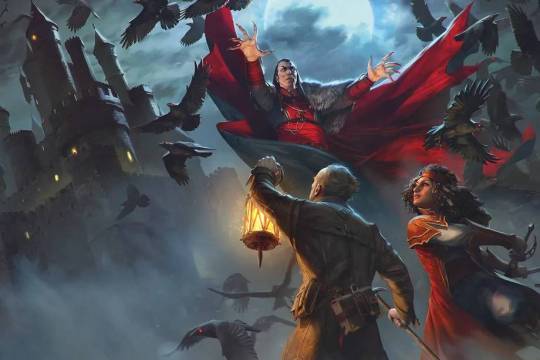
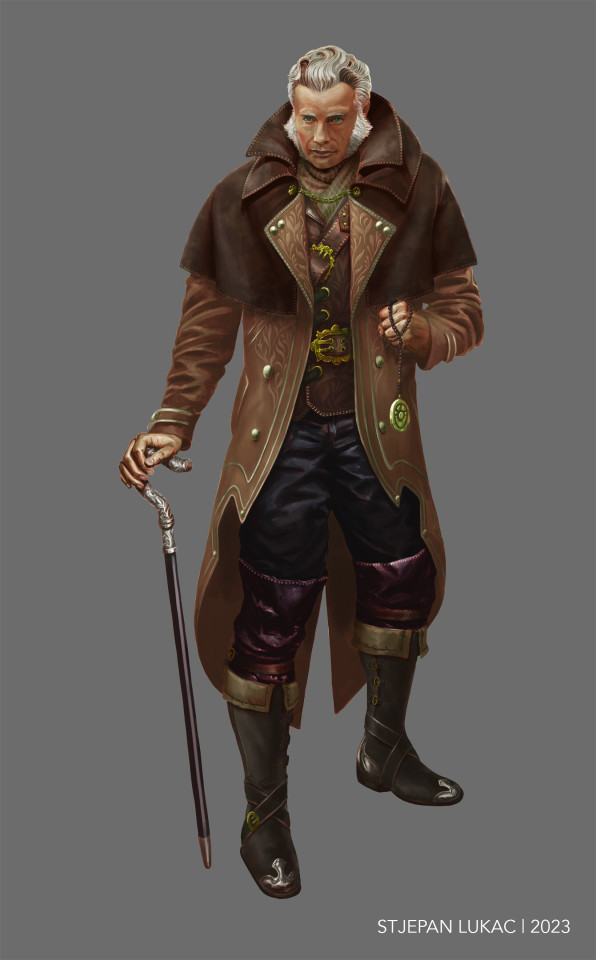
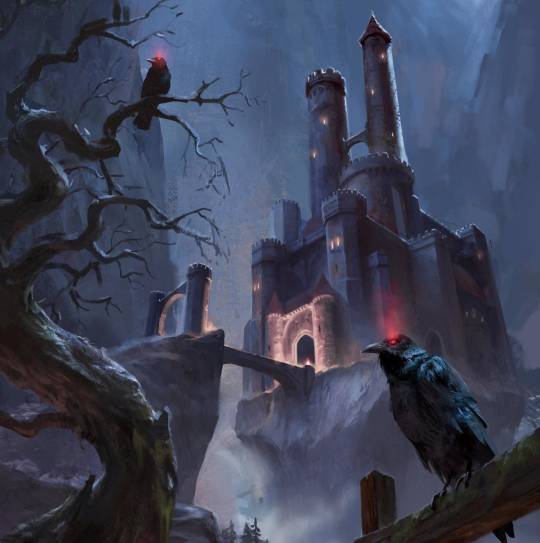
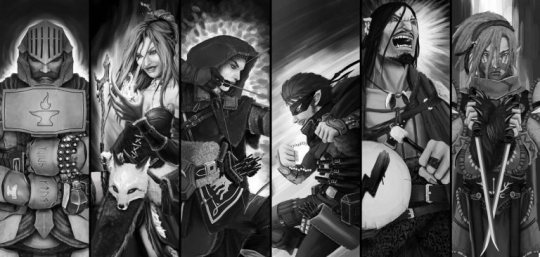
4.) Before Annapolis was ever called such it was known as Providence, a settlement of exiled Puritans in the Province of Maryland, but these early days were no easy set-up for the far-flung protestants... in the mid 1600s the English Civil War spilled out into their holdings across the waves as brother turned on brother, clan erasing clan, and something from the shores of the Old World would arrive in the New. When around every corner could be someone you've known your whole life, what's stopping them from hunting you in the depths of winter. All matters made worse when rumors of a witch begins circulating your small home.
Think "The VVitch" (2015) meets "A Field in England" (2013) meets Atun Shei's recent film "The Sudsbury Devil" (2023). It is the unexplored wilderness of early colonial Maryland, but the hateful warmongering that slowly builds that makes the horror and tension so clear. Unsure of what system we'll be using, but maybe the new Regency Cthulhu system.
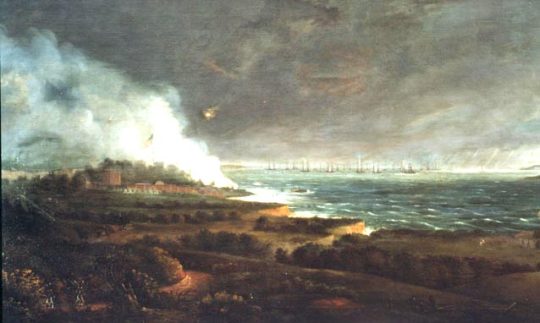
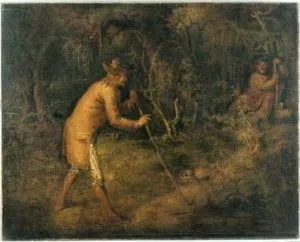
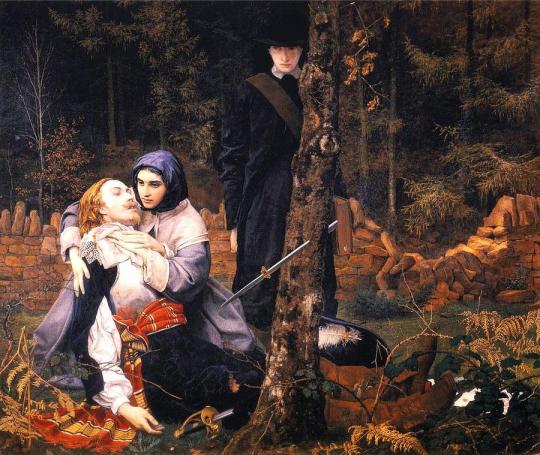
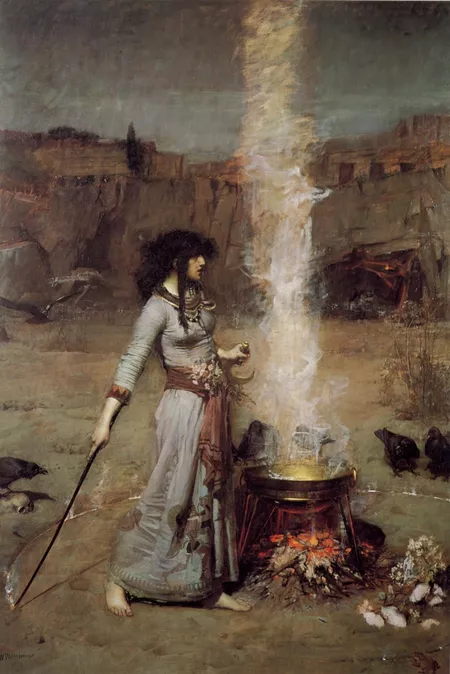
5.) The Great Baltimore Fire of 1904 destroyed some 140 Acres of Baltimore proper... and in it's rubble awakened something far worse. But you and your fellow survivors are just trying to get by in the aftermath of the fire... only for something to call out, whether some strange magicks or perhaps just a sickness... but sickness doesn't even linger like this... it doesn't call to you...
Some more local history, aspiring from the actual Fire of 1904 things quickly devolve from there as rumors of a cult begin to spread along the streets of Rosland Park... a mysterious illness leaving even more dead... and the death of an eclectic professor. Definitely using the Call of Cthulhu 7th Edition for this one.


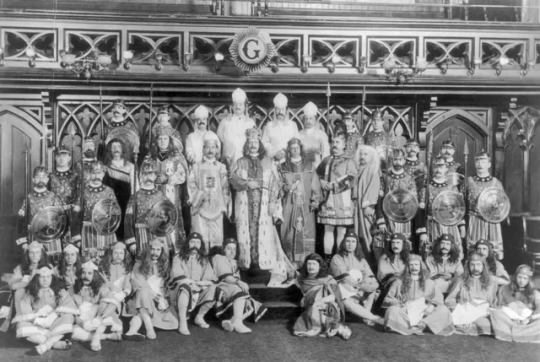

Aaaaaaaand that's it! Let me know what y'all think!
#dungeons and dragons#d&d teaser for my campaign#d&d#dnd#call of cthulhu#roleplay#rp#critical role#dimension 20#actual play#dnd liveplay#cosmic horror#horror#lovecraft#lovecrafian#campaign#dnd campaign#writers on tumblr#original story#writing#writer things#worldbuilding#maryland#baltimore#baltimore history#history#historic fiction#historic fantasy#baldur's gate 3#live play
44 notes
·
View notes